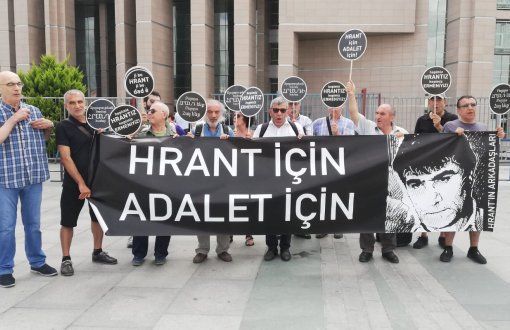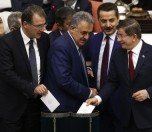Prof. Köker: Referendum to Mean Political Division
.jpg)
Click to read the article in Turkish
Voting as to lifting parliamentary immunity of the MPs against whom lawsuit has been brought concluded.
First clause of the constitutional amendment proposal was approved with 350, the second clause with 357 votes.
Legist Prof. Dr. Levent Köker speaking to bianet stating that the first round results indicate that the process will most likely conclude with a referendum said, “Referendum means political division, I don’t know how they run the risk of it”.
“When the referendum is actualized, what will they do when a city predominantly supporting the HDP (Peoples’ Democratic Party) votes against with 80%-90% whereas another city such as Yozgat votes for with 80%? This means political division. How can a party like the MHP (Nationalist Movement Party) advocating policy that ‘Turkey can’t be divided’ afford it?”
Individuality of crime
* Lifting parliamentary immunity of the MPs against whom presses have been charged instead of every MP is contrary to the principle of individuality of crime. According to the Constitution, each parliamentary immunity can be lifted one by one. You cannot pave the way for criminal justice by Constitutional amendment.
Criminal law doesn’t process retrospectively
* Criminal law doesn’t process retrospectively. If you are making an amendment as to criminal judgement, then this can only proceed prospectively. Today, a law is being enacted against the suspects – the MPs against whom charges have been pressed – and also being processed retrospectively.
Violation of right to plead
* In this way, right to plead of the MPs is being violated. If an MP’s parliamentary immunity is lifted in accordance with the Constitution, then that MP has the right to plead before the General Council. You are taking away the MPs’ right to plead.
Application to the Constitutional Court becomes harder
* If the process had continued as in the Constitution, any MPs including the one whose parliamentary immunity is lifted could apply to the Constitution Court by claiming it is contrary the Constitutional Court. But now, when you try to lift the parliamentary immunity by Constitutional amendment, it is possible only with approval of 110 MPs.
Secrecy of the voting has been violated
* The voting as to the Constitutional amendments must be secret voting and that group decisions are not taken, however, some MPs posing by showing their votes has violated this secrecy.
* Prof. Köker said that in this case the process in question has violated all basic rights, thus this is unacceptable even if is approved by all of the MPs (550) or it receives 100% aye votes in the referendum.
* In the following process, the bill won’t pass if it is approved by less than 330 MPs.
* If the ballot results between 330-366 votes, then referendum seems certain. The President has the right to send back the results in case it comes out between 330-550, but if it results between 336-550, then the President may take the offer to the referendum if he “wishes”.
Prof. Köker expressed that passing of this bill means to exclude the Peoples’ Democratic Party (HDP) from politics.
“HDP may not represent all the Kurds but if the HDP is excluded from the parliament, the Kurds not supporting them will feel excluded as well”. (EA/TK)
|
About Prof. Dr. Levent Köker He was born in 1958 in Ankara. He graduated from first Tarsus American High School, and then Ankara University, Faculty of Law in 1980. He completed his PhD. at Ankara University, Faculty of Social Sciences. He became Assoc. Prof. in 1990. He worked as academic for a long time at Gazi University, Faculty of Economics and Administrative Sciences, and Faculty of Law of the same university. He is an academic member at Atılım University, Faculty of Law Department of Public Law. Between the years of 1989-1997 he part-time lectured at Middle East Technical University, Bilkent University and Ankara University. Köker continues his lectures at the Near East University, Faculty of Law. |
|
Hrant’s Friends on Watch at 75th Hearing

2 People Released from Prison in Hrant Dink Case

Hrant’s Friends are at Justice Watch at 72nd Hearing

Afrin Resident Blames ‘FSA’, Habertürk TV Translates as ‘YPG’
.jpg)
7th Hearing in Cumhuriyet Trial
.jpg)





